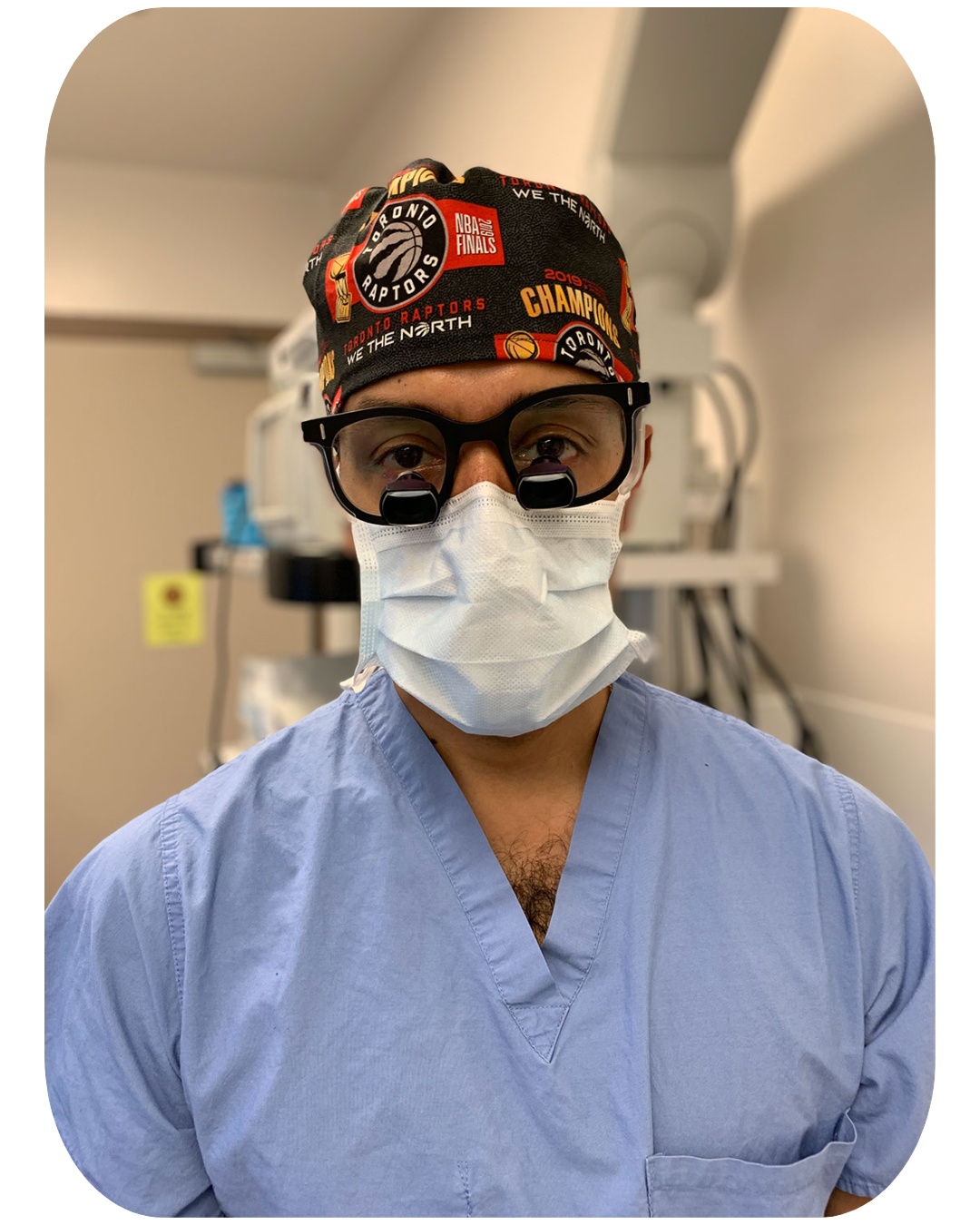Spotlight: Dr. Shiva Jayaraman on NeoPancONE and building a first-class pancreatic cancer care program at St. Joseph’s Health Centre
By Ali Schofield
The critical impact of NeoPancONE
“This disease is a challenge, but where there is a problem there is great opportunity,” said Dr. Jayaraman, who is leading the NeoPancONE trial site at St. Joseph’s Health Centre. “We have observed the outcome and the care of pancreatic cancer patients for over three decades, and when you look at the patients who have had resection, nothing has changed in 30 years. NeoPancONE is a great example of how we can improve patient survival.”
NeoPancONE is a neoadjuvant study sponsored by Pancreatic Cancer Canada in which patients with operable pancreatic cancer receive chemotherapy before surgery to shrink their tumour and then again after surgery to kill any remaining cancer cells. This method of treatment is already standard of care in places like the United States but has yet to become a regularly practiced strategy in Canada.
“This study is important, not only for my patients, but to influence how we apply this research in a Canadian patient population,” Dr. Jayaraman said. “Most of how we currently approach chemotherapy is shotgun medicine. Surgery plus chemo equals an optimal chance at survival, but this trial may offer more than that for patients.”

Dr. Shiva Jayaraman
Hepatobiliary and Pancreas Surgeon at St. Joseph’s Health Centre, Associate Professor of General Surgery at the University of Toronto, and leader of the NeoPancONE trial site at St. Joseph’s Health Centre.“What NeoPancONE is doing is not only trying to improve overall survival, but hopefully give us a signal that would help guide who might be best to receive neoadjuvant therapy. Chemotherapy isn’t necessarily for everyone, so if you can better select the patients that would benefit most that helps support better outcomes for more patients.”
A career born out of the desire to help
“What started as a fascination with anatomy developed into an interest in disease.” Growing up Ottawa, Dr. Jayaraman was a student with a head for science and a desire to help others, making the decision to pursue medical school a natural choice. It was during a General Surgery rotation while he was studying Medicine at Western University that he solidified his professional path. “I fell in love with the complexity of the Whipple surgery and had hopes early in my career to become a Hepato-Pancreatic-Biliary (HPB) surgeon.”
Dr. Jayaraman went on to complete a Master’s degree in Mechanical and Computer Engineering, studying robotics and minimally invasive surgery to be on the leading edge of medical technology. He later accepted an HPB fellowship at Memorial Sloan-Kettering in New York City, which he describes as a transformative year that strengthened his commitment to treating diseases like pancreatic cancer.
“My fellowship was an immersive experience in volume and complexity. There were so many cases week after week, I became fascinated by why we do surgery. Up until then I was focused on the technical aspects of treating the disease, but it’s really biology that dictates outcomes. Biology beats technique.”
Growing a first-class pancreatic cancer program
Following the completion of his fellowship, Dr. Jayaraman considered staying in the United States to continue his work until he was offered the chance to grow the HPB program at St. Joseph’s Health Centre in Toronto.
“It was a great opportunity to come back to Canada and be part of developing an existing program into a modern high-volume unit, and that’s what we’ve done over the last eleven years. We are continually looking into clinical pathways and forging relationships with other institutions to better patient outcomes.” Dr. Jayaraman and his team started working towards academic ambitions early, and plan to have 100% of patients enrolled on clinical trial protocols in the future.
“One of the exciting things about our health centre is being able to shepherd patients from start to finish. We have incredible leadership in chemotherapy and multi-disciplinary roles, and our tumour boards are vibrant conversations where patients are considered for clinical trials,” Dr. Jayaraman said. “The merger of St. Joseph’s with St. Michael’s Hospital as part of Unity Health has only enhanced that. St. Joseph’s has a strong surgical program and St. Michael’s has a world-class endoscopic diagnostic program for pancreas cancer patients.”
In addition to the first-class treatment centre that Dr. Jayaraman has been instrumental in building, he’s also created online resources for patients to better understand the surgical procedures for pancreatic cancer.
“Pancreas cancer and the implications of this disease are devastating. There is no way to prepare for this kind of thing. We are blessed with having high quality centres of excellence that offer superior care in line with best practices and fortunate to have researchers and organizations dedicated to asking questions that will advance our understanding and treatment of this disease.”

Recent Comments